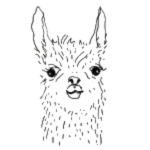About Catuai Rosita Anaerobic Natural
Finca Rosita is located in the Illimani community in the gorgeous region of Caranavi, Bolivia.
The farm covers 32 hectares, solely dedicated to coffee cultivation.
The farm is named in honor of the memory of the matriarch of the Valverde-Aramayo family, Rosa Angelica Aramayo.
Depending on weather conditions, drying time varies from approximately 20 to 25 days. The fermentation is anaerobic, that means that the coffee is fermented in completely sealed tanks without oxygen. Airlocks are used to allow the coffee to release co2 gases without oxygen entering the tank. This allows a completely controlled and homogeneous fermentation. This lot is fermented and dried in cherry.
To determine the proper fermentation point, a brix meter (sugar content meter) is used. During the fermentation process, the coffee releases a liquid that accumulates at the bottom of the tank. Each tank has a tap where the brix of the liquid is measured every 3 to 4 days to determine if the coffee has fermented properly. When the sugar content of the coffee reaches 8 brix, the coffee is removed from the tank to proceed with drying. This fermentation process takes between 4 to 5 days to complete.
The community of Illimani is located near the base of the snow-capped mountain that also bears the Illimani name (“where the sun rises” in Aymara). With a height of 6,462 masl, this mountain is made up of 4 peaks and is the second highest mountain in the Bolivian Andes.
The vegetation changes rapidly, from large plantations of potatoes and quinoa to many hectares of coffee, plantain, yucca and others. These and other peculiarities of the Andean terrain create the complexity and differentiation of the Bolivian coffee.



